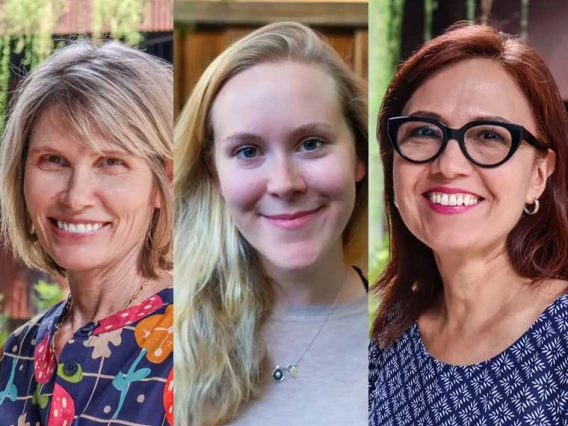Mo's Policy Scholars
Get paid $1500 to be mentored by an expert researcher!
Applications open Feb. 16, 2026
Are you a junior or senior at U of A interested in being mentored by an experienced research professional?
Do you want to learn how you can impact environmental policy or strengthen Indigenous governance?
Do you want to get paid to learn and further your professional prospects after you graduate?
If you answered “yes” to all three questions, you may be a perfect fit for Mo’s Policy Scholars!

What is the Mo's Policy Scholars Program?
Mo's Policy Scholars is a competitive 15-week paid mentorship program for U of A juniors & seniors who are interested in having an impact on environmental and Indigenous governance policy.
The program is inspired by the legacy of Arizona politician Morris K. "Mo" Udall who served 30 years as a member of Congress.

What do Mo's Policy Scholars do?
If selected, you will be assigned your own mentor from the Udall Center’s pool of U of A faculty research professionals, each of whom are experts in their field and have extensive research and publishing experience. This is a great opportunity to get real, professional academic experience in your field of study and in policy-adjacent research in general.
For 15 weeks during the fall semester you will earn a $1500 stipend to:
- Work approximately five hours per week as a program assistant with your mentor.
- Attend monthly in-person educational meetings (five total) with your Mo’s Policy Scholars Cohort.
• August 26th, 2026 – 3pm to 5pm
• September 16th 2026 – 3pm to 5pm
• October 14th 2026 – 3pm to 5pm
• November 11th 2026 – 3pm to 5pm
• December 2nd, 2026 – 3pm to 5pm - Present a final project that summarizes your experience as a Mo’s Scholar.

How do I apply?
Applicants must be a U of A junior or senior interested in environmental policy and/or Indigenous governance & eligible to receive $1500 stipend.
Get ready for 2026 by preparing the following:
- Answer the following questions in 50-100 words or less:
- Why are you interested in being mentored by an experienced research professional in the Udall Center?
- How do your academic interests align with environmental policy and/or Indigenous governance?
- Why are you interested in impacting environmental policy or strengthening Indigenous governance?
- What do you hope to learn from this experience?
- How will this experience help you achieve your future goals?
- Your current resume / CV highlighting the required skills for the research projects.
- Rank the research projects (below).





